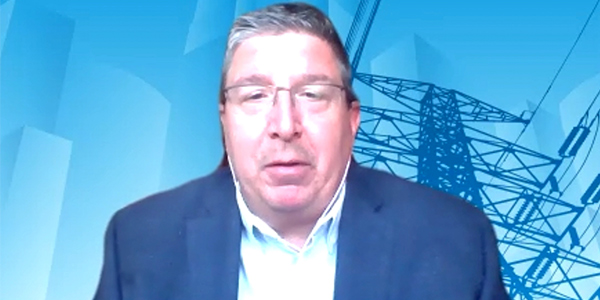Government efforts to ensure the security of the bulk power system run the risk of hampering utilities’ ability to operate effectively, industry representatives warned at the National Association of Regulatory Utility Commissioners’ Summer Policy Summit on Tuesday.
“I think it would be one thing if we get a blacklist. ‘Here are two or three vendors not to use’ — we’ll deal with that,” Mike Kormos, senior vice president of transmission and compliance at Exelon, said during the “Managing Supply Chain Risks in Critical Energy Infrastructure” panel. “If we’re being told [we’re] only allowed to use one or two, because they’ve been certified and the rest have not … [that] may not be able to fully support this industry with what we have going on.”
NARUC organized the panel in response to President Trump’s declaration of a national emergency in May aimed at restricting the purchase of BPS equipment from suppliers suspected of connections with foreign adversaries, defined as any foreign government or nongovernmental person connected with threats against the U.S. or its allies. (See Trump Declares BPS Supply Chain Emergency.)
Both NERC and the Department of Energy followed up on Trump’s executive order earlier this month. NERC issued a Level 2 alert requesting information on transformer control and protection systems, while DOE filed a request for information focusing on utilities’ practices for identifying and mitigating supply chain vulnerabilities. (See NERC Issues Level 2 Supply Chain Alert.) Both DOE and NERC have identified China and Russia as the most pressing adversaries, with Iran, Cuba, North Korea and Venezuela also mentioned as significant threats.
Industry Fears Compliance Costs
While Kormos said that Exelon and its industry peers understand the need for the executive order and the urgency of the information requests, he reminded the panel of the compliance burden facing companies asked to review all of their equipment by the Aug. 21 deadline for NERC’s alert. The restriction of the alert to equipment purchased in the last 10 years helps reduce the amount of work needed, but entities might be unable to provide some of the information being demanded, he said.
“It’s one thing for us to recognize and figure out who we bought from. … We probably have those records going back 10 years,” Kormos said. “But when you start talking about potential subcomponents of these systems … [we] might have bought a transformer from one vendor, [and] who that vendor was using for subcomponents in that is something we don’t have, quite frankly.”
Kormos also voiced industry concerns over the longer-term implications of the order, particularly the possibility that utilities could be asked to “rip and replace” equipment deemed vulnerable to foreign interference. Such a requirement could leave entities with dangerously reduced inventory, unable to muster enough spare parts to repair damage from major storms or other events.
Engaging Vendors, not Punishing Them
Representatives of both DOE and NERC emphasized that they were aware of industry’s concerns and would aim to keep their communications transparent. Manny Cancel, senior vice president at NERC and CEO of the Electricity Information Sharing and Analysis Center, told the panel that the intent of the executive order and the follow-on actions by NERC and DOE were not meant “to drag vendors through the mud,” but to engage with them and their expertise to protect the power grid.
“We see this order as complementing NERC’s work. … We kind of knew it was coming … and what our response would be once the order was published,” Cancel said. “The purpose of this alert is … really to establish extent of condition — how much of this effort is out there, where is it — and that will help inform subsequent actions and efforts around this.”






